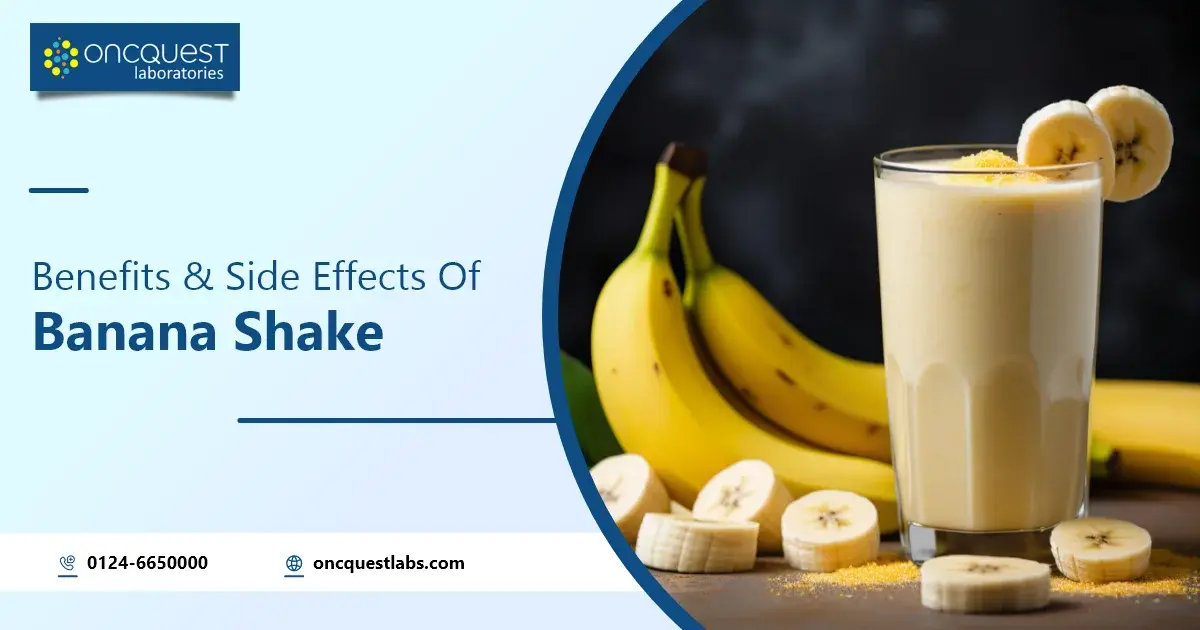A banana shake is a beverage made by blending ripe bananas with milk or milk alternatives, often sweetened with honey or sugar, and sometimes enriched with additional ingredients such as nuts, seeds, or protein powder. It is typically creamy, smooth, and sweet, making it a popular choice for a nutritious and delicious drink.
Banana shakes are enjoyed worldwide for their delightful taste and health benefits. They are a staple in many households, cafes, and smoothie bars, often consumed as a breakfast option, post-workout recovery drink, or a healthy snack. The versatility in ingredients and ease of preparation contribute to their widespread popularity.
The purpose of this outline is to explore the various health benefits and potential side effects of banana shakes. By understanding both the positive and negative aspects, consumers can make informed decisions about incorporating banana shakes into their diets. This outline will provide a comprehensive overview of the nutritional composition, health benefits, possible side effects, and tips for making a healthy banana shake.
Contents
Health Benefits of Banana Shakes
Banana shakes are not only delicious but also offer a range of health benefits due to the nutritious ingredients they contain. Here are 10 reasons why incorporating banana shakes into your diet can be advantageous for your overall well-being:
1. Nutrient-rich
Banana shakes are packed with essential nutrients like potassium, vitamin C, vitamin B6, and fiber, which are vital for overall health.
2. Energy boost
The natural sugars in bananas provide a quick and sustained energy boost, making banana shakes an excellent choice for pre or post-workout fuel.
3. Digestive health
Bananas are rich in dietary fiber, which aids in digestion and promotes regular bowel movements, helping to prevent constipation.
4. Heart health
The potassium in bananas helps regulate blood pressure and maintain a healthy heart rhythm, reducing the risk of cardiovascular diseases.
5. Muscle recovery
The combination of carbohydrates and protein in banana shakes makes them an ideal post-exercise recovery drink, helping to replenish glycogen stores and repair muscle tissue.
6. Weight management
Despite being naturally sweet, bananas are relatively low in calories and fat. Including banana shakes in a balanced diet can help with weight management and provide a satisfying snack or meal replacement.
7. Bone health
Bananas contain nutrients like magnesium and manganese, which are essential for maintaining strong and healthy bones.
8. Improved mood
Bananas are a natural source of tryptophan, an amino acid that helps the body produce serotonin, a neurotransmitter associated with mood regulation and feelings of happiness and well-being.
9. Skin health
The vitamin C and antioxidants in bananas help promote healthy skin by fighting free radicals that can cause premature aging and skin damage.
10. Boosts immune system
The combination of vitamins and minerals in banana shakes, particularly vitamin C, helps strengthen the immune system and protect the body against infections and illnesses.
By enjoying banana shakes regularly as part of a balanced diet, you can not only indulge in a tasty treat but also support your body’s health in numerous ways.
Side Effects of Banana Shakes
While banana shakes are often praised for their delicious taste and numerous health benefits, it’s important to be aware of potential side effects that may arise from consuming them. While they can be a nutritious addition to your diet when enjoyed in moderation, overindulgence or certain individual factors may lead to adverse effects. Here are some potential side effects to consider:
1. Weight Gain
While bananas are nutritious, they are also calorie-dense due to their natural sugars and carbohydrates. Consuming banana shakes in excess or as a frequent snack without considering calorie intake can lead to weight gain, especially if not balanced with physical activity.
2. Blood Sugar Spikes
Bananas contain natural sugars, including glucose and fructose. While these sugars are typically absorbed more slowly due to the fiber content in whole fruits, blending them into a shake can break down the fiber, leading to quicker absorption. This may cause blood sugar levels to spike, which can be problematic for individuals with diabetes or insulin resistance.
3. Gastrointestinal Issues
For some individuals, consuming banana shakes in large quantities or on an empty stomach may lead to gastrointestinal discomfort, such as bloating, gas, or even diarrhea. This can be due to the high fiber content in bananas, which may be exacerbated when blended into a liquid form.
4. Allergic Reactions
Although rare, some individuals may have an allergy to bananas or develop allergic reactions to other ingredients commonly added to banana shakes, such as milk or nuts. Symptoms of banana allergy may include itching, swelling, hives, or in severe cases, anaphylaxis.
5. Dental Health Concerns
Bananas are naturally acidic, which, when consumed frequently in the form of shakes, can contribute to dental erosion over time. Additionally, if sweetened or flavored, banana shakes may contain added sugars that can increase the risk of tooth decay and cavities.
6. Interference with Medications
Bananas contain compounds that may interact with certain medications. For example, bananas are high in potassium, which can affect the effectiveness of potassium-sparing diuretics or medications used to manage heart conditions. Individuals taking such medications should consult with their healthcare provider before consuming banana shakes regularly.
While banana shakes can be a nutritious addition to a balanced diet for many people, it’s essential to be mindful of portion sizes, ingredients, and individual health considerations to avoid potential side effects. Consulting with a healthcare provider or nutritionist can provide personalized guidance based on specific dietary needs and health goals.
Tips for Making a Healthy Banana Shake
A. Choose Ripe, Organic Bananas
- Opt for ripe bananas as they are sweeter and easier to blend, providing a more flavorful shake.
- Consider using organic bananas to minimize exposure to pesticides and chemicals.
B. Use Low-Fat or Plant-Based Milk
- Select low-fat or non-fat milk options to reduce saturated fat content.
- Alternatively, choose plant-based milk such as almond milk, soy milk, or oat milk for a dairy-free option.
C. Limit Added Sugars
- Minimize the use of added sugars like honey, maple syrup, or sugar to keep the shake healthier.
- Rely on the natural sweetness of ripe bananas for flavor, and use sweeteners sparingly, if at all.
D. Portion Control and Moderation
- Practice portion control by keeping serving sizes in check to avoid excessive calorie intake.
- Enjoy banana shakes as a part of a balanced diet, incorporating them in moderation rather than consuming them excessively.
- Monitor ingredient quantities to maintain a balanced nutritional profile and prevent overindulgence.
Conclusion
In conclusion, banana shakes offer a delicious and nutritious option for boosting energy, supporting digestive health, and aiding in muscle recovery. While enjoying their benefits, it’s important to be mindful of potential side effects and to consume them in moderation as part of a balanced diet. With careful consideration and personalization, banana shakes can be a delightful addition to a healthy lifestyle.
FAQs
Are banana shakes suitable for individuals with diabetes?
While bananas contain natural sugars, they also provide essential nutrients like fiber and vitamins. However, individuals with diabetes should monitor their intake and consider factors such as portion size and added sweeteners. Consulting a healthcare professional is recommended to determine the suitability of banana shakes in their diet.
Can banana shakes help with weight loss?
Banana shakes can be incorporated into a weight loss regimen as part of a balanced diet. They offer satiety from fiber and protein, making them a satisfying snack or meal replacement option. However, it’s essential to control portion sizes and avoid high-calorie additives to support weight loss goals.
How can I make a dairy-free banana shake?
To make a dairy-free banana shake, simply substitute cow’s milk with plant-based alternatives such as almond milk, soy milk, or oat milk. These options provide a creamy texture and offer various flavors to suit individual preferences.
Are banana shakes suitable for children?
Banana shakes can be a nutritious option for children, providing essential nutrients like potassium, vitamins, and fiber. However, it’s important to consider any allergies or dietary restrictions they may have and adjust the recipe accordingly. Supervision and moderation are key to ensuring their consumption aligns with their nutritional needs.
Can I freeze banana shakes for later consumption?
Yes, banana shakes can be frozen for later consumption. However, the texture may change upon thawing, becoming slightly icy or less creamy. To maintain optimal texture, consider using frozen bananas and blending them with other ingredients just before serving.





